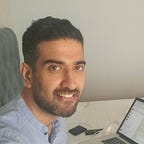Thomas Drake: The NSA has primary culpability for 9/11
Thomas Drake is a former senior executive of the U.S. National Security Agency, a decorated United States Air Force and United States Navy veteran. In April 2010, a federal grand jury in Maryland indicted Tom under the Espionage Act for illegally retaining classified information after he was suspected of leaking operational inefficiencies in the National Security Agency.
Listen to the full interview on Newsvoice Think podcast
In a recent interview, Newsvoice spoke to Thomas Drake about his work with the NSA and why 9/11 made him go to the press in the interest of the American and global public.
Reliving 9/11 and the months that followed
“9/11 was the basis for what happened to me and the government turning me into an enemy of the state as a result of my whistleblowing,” says Drake. Coincidentally, the day of the attack also happened to be his first day of work at the NSA.
He dwells on how all intelligence leading up to the attack had been ignored for years, an issue most Government apologists have refused to accept even to this day. Drake labels the attack a fundamental failure on the part of the US Government to protect people, not just nationals but foreigners, pointing to the nearly 300 foreign nationals who were killed in the attack.
The period following the attack saw extraordinarily high-level decisions made, some of which he believes should have never been made in the manner they were. These include mass surveillance as well as torture regimes that were put into place.
Decisions were made by the US which cleared the entire globe a battlefield. They could go against anyone, anywhere, at any time.
9/11 was a fundamental failure to protect people
With the explosion of the internet in the 1990s, Drake explains why surveillance agencies were caught wanting as the analog world made its transition into the digital age. “The NSA just didn’t know what to do about it. The historical approaches to understanding what we called indications of warning came up way short,” he explains. “The NSA didn’t even consider the Internet worth knowing about, because everything was ‘open’. It contained nothing secret,” he says with a wry smile. Labelling 9/11 a systemic and strategic failure, Drake pins the primary blame for preventing such an attack on the NSA.
The attack was viewed as an existential threat, a threat that became an excuse to violate the constitution
Drake reflects on how ‘revenge’ became a word, popularized around mainstream media during coverage of the attack. Echoes of “punish the perpetrators” reverberated throughout the media and Government officials pushed the argument for the invasion of Iraq and Afghanistan. This, he believes, became an excuse for placing the national security apparatus above any consideration for the law of the land.
I was not going to remain silent. If I remained silent I would be complicit in a crime.
The criminal investigation that followed his whistleblowing
Many high-profile whistleblowers have been cited as American heroes by the liberal press that helped to disseminate their leaks, but almost all have been castigated as traitors on the other side of the political spectrum. Drake, who says he was privy to secret decisions made at the very highest level, faced a similar fate.
The violation of the American constitution is a common theme of conversation with all former NSA staff (Check out our interview with Bill Binney here) and contractors who had the moral fibre to blow the whistle. Within the NSA, Drake asked why Congress wasn’t approached to amend the constitution in the aftermath of 9/11, providing the legal authority to carry out mass surveillance. Chillingly, he says, he was told Congress wasn’t approached “because they might say no”.
By 2006, Drake was under criminal investigation, accused of leaking intelligence secrets to the New York Times (which he denies). He faced isolation within the NSA and “death by a thousand bureaucratic paper cuts”. He ultimately stood his ground, making a conscious choice to accept the risks involved as a whistleblower.
With Newsvoice, you can be a part of the media. Our mission is to democratize the news, and move the power over to our readers. Get involved by downloading the app, or visit us at Newsvoice.com.
